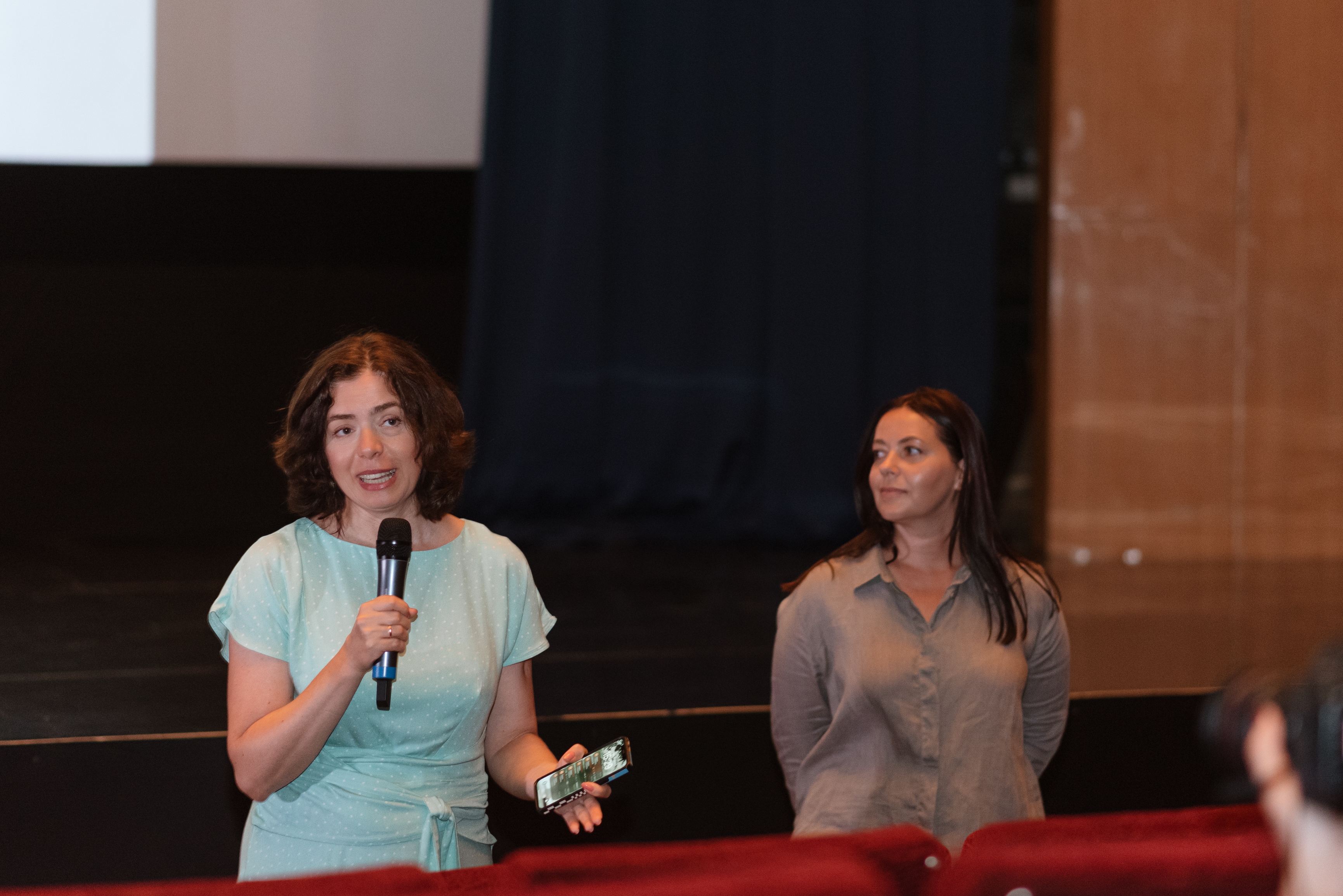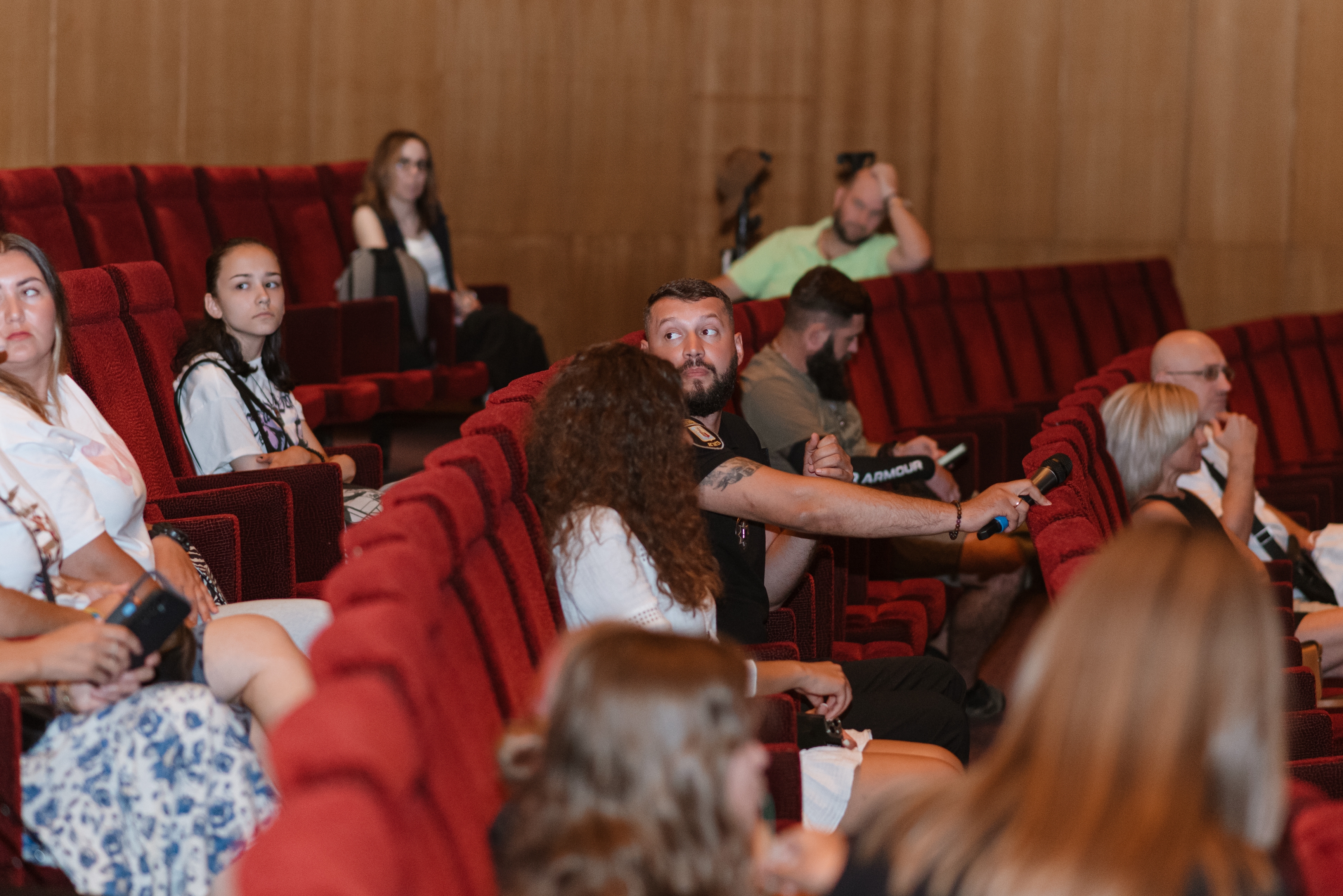
The Network team has been thoroughly preparing for this cooperation by consulting with psychologists and initiators of rehabilitation groups and creating lists of films for future screenings.
Daddy’s Girl provided a great opportunity to discuss love and relationships in families, the upbringing of children, and the influence of traditions on people, regardless of their life environment.
“We selected the films carefully, because our intention was to create an atmosphere suitable for an open and sincere conversation. Indeed, we succeeded: the discussion was both energized and engaging. The audience eagerly reflected on what they had seen, which was truly inspiring,” shared Olha Babchuk, Communications Manager of the DOCU/CLUB Network and moderator of the event.

Emotional conversation after the documentary screening
For many participants, this was the first experience of watching and discussing a documentary film. The exchange of thoughts and impressions helped them gain a deeper understanding of the film, notice interesting filmmaker’s decisions, and attempt to “translate” the fate of the protagonists and their actions into the Ukrainian context.
“This is nothing more than everyday life! What exactly did the director want to convey to us? This film has no plot — or at least, I can’t see one,” one viewer unexpectedly began the discussion.
“I disagree. The director succeeded in showing how parents and children manipulate one another across generations. This film is a family saga in which we can clearly recognize the stories of our own families,” responded another participant.
The atmosphere of the discussion remained warm and friendly, despite the heated exchange.
“For me, this conversation was particularly important, tolerant, and amicable, even though we all come from different backgrounds and could have debated parenting for a very long time. I am truly curious about the development of Melisa’s relationship with her father in the years after filming, the way her personal life unfolded, and whether she was able to avoid manipulating her own children the way two preceding generations had done,” reflected one of the viewers.
This feedback is both inspiring and affirming, demonstrating that the film club format is particularly valuable for bringing together the audiences, fostering dialogue, and building mutual understanding.

Viewers discuss the film Daddy’s Girl
“Cultural rehabilitation in the museum is not merely a series of individual events, but rather a space for recovery and support. We strive to create an atmosphere where service members, veterans, and their families can experience unity, share their feelings, and see that they are not alone. To achieve this, we combine diverse formats, from creative workshops to film screenings and discussions, because such variety helps foster resilience and restore inner strength. A screening followed by discussion is a simple yet highly effective therapeutic format that allows participants to engage with complex issues and opens space for reflection and healing. We are convinced of its importance. These gatherings provide resources, trust, and the strength to overcome life’s challenges together,” explains Iryna Uzhakova, Head of the Cultural Rehabilitation Program at the War Museum.
“Cooperation with rehabilitation centers and military hospitals is a strategic priority for our Network. We are happy to have contributed to the cultural rehabilitation program launched at the War Museum. We are convinced that our partnership will continue to grow, as there is a strong demand among the military and their families for such documentary screenings to become regular events,” says Nina Khoma, Head of the DOCU/CLUB Network.
The teams of the Network and the War Museum have already scheduled their next event for service members for September.
The development of the DOCU/CLUB Network is funded by the Embassy of Sweden in Ukraine, the National Endowment for Democracy (NED) and Fondation de France.
The opinions, conclusions or recommendations are those of the authors and compilers of this publication and do not necessarily reflect the views of the governments or charitable organizations of these countries. The authors and compilers are solely responsible for the content of this publication.



